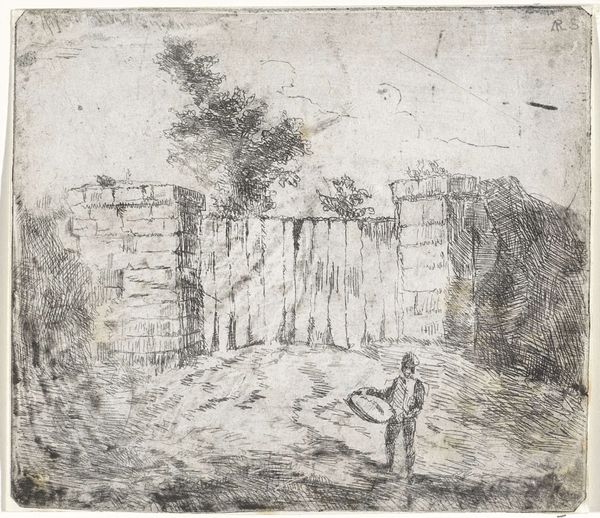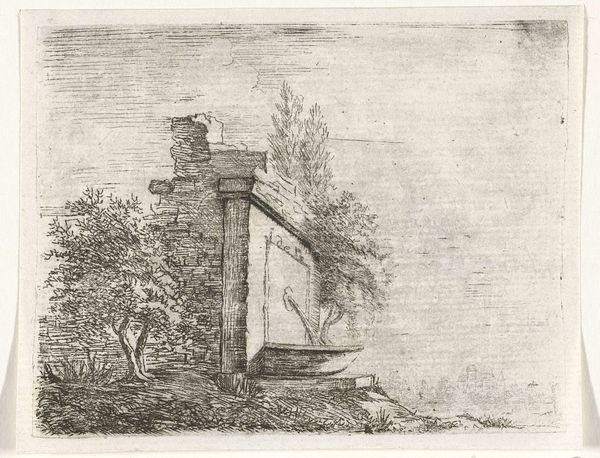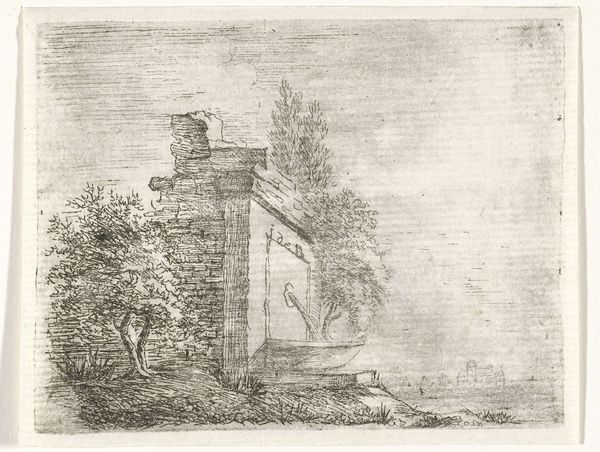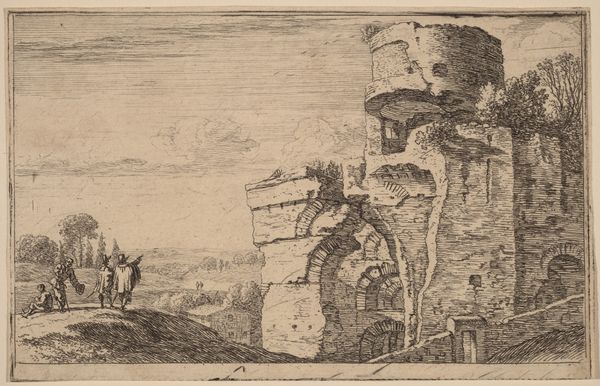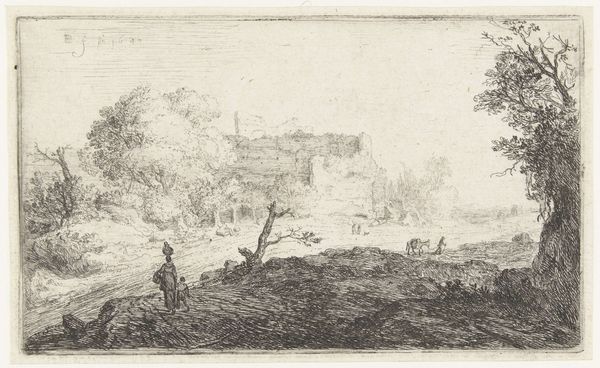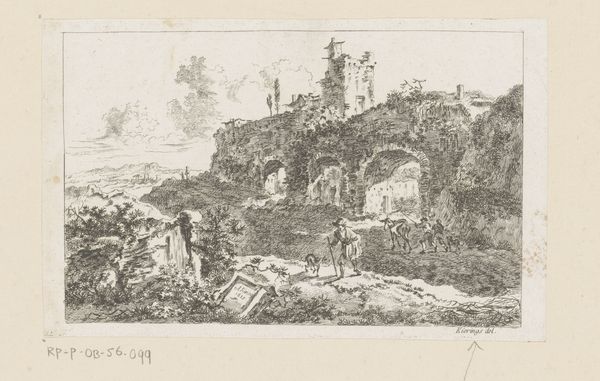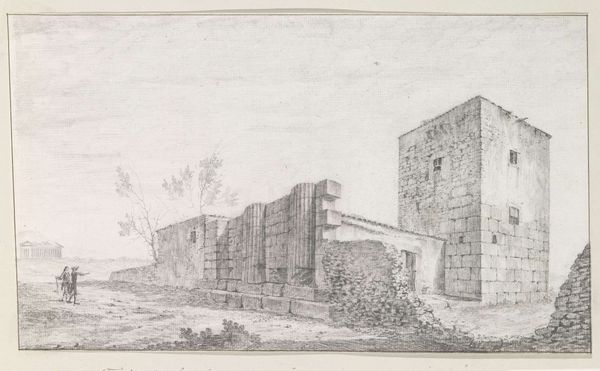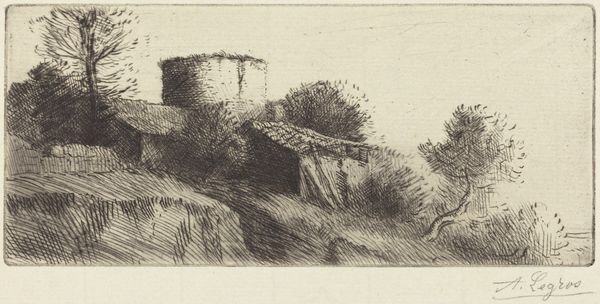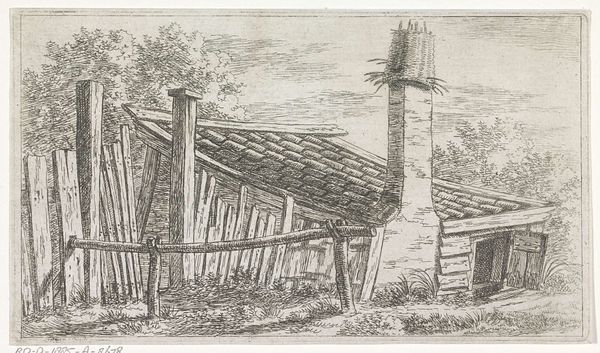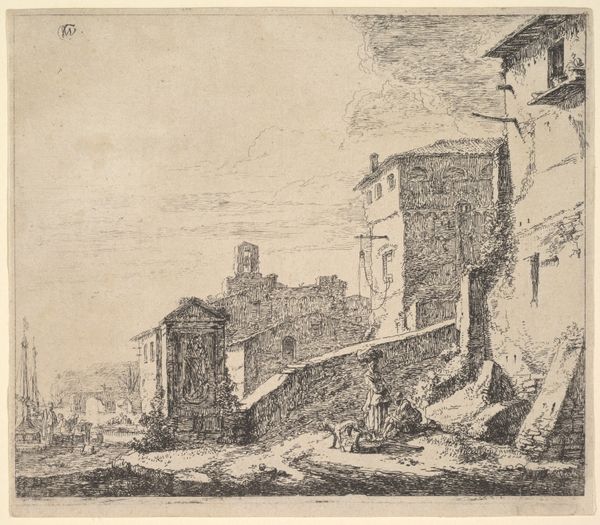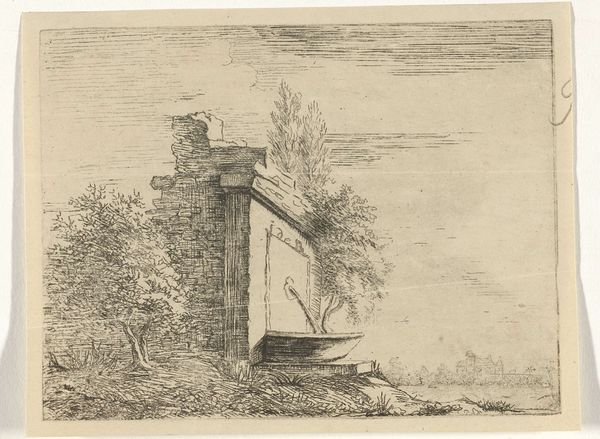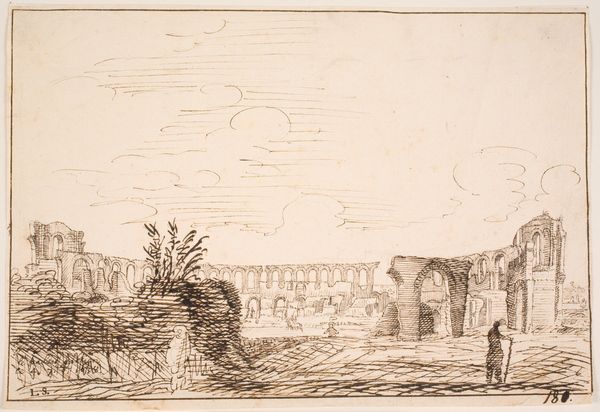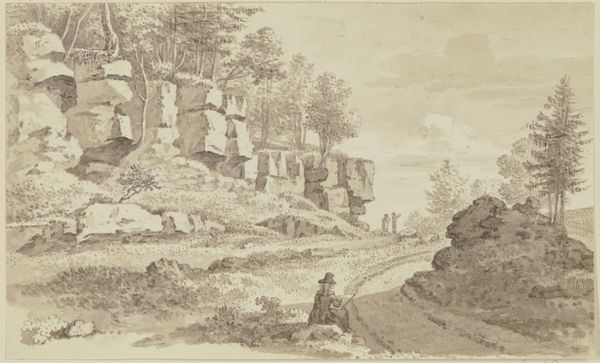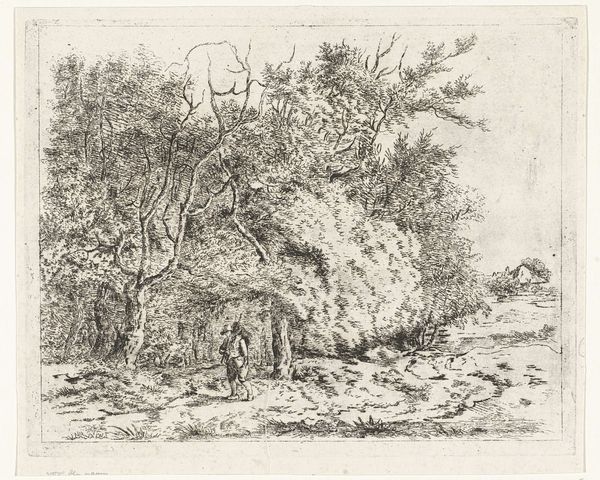
drawing, etching, ink
#
drawing
#
amateur sketch
#
light pencil work
#
pen sketch
#
etching
#
pencil sketch
#
incomplete sketchy
#
landscape
#
figuration
#
personal sketchbook
#
ink
#
pen-ink sketch
#
pen work
#
sketchbook drawing
#
sketchbook art
#
realism
Dimensions: height 133 mm, width 157 mm
Copyright: Rijks Museum: Open Domain
Curator: This is "Man voor een houten poort," or "Man before a wooden gate," by Arnoud Schaepkens, dating from 1831 to 1904. It appears to be an etching or possibly an ink drawing. Editor: There's a certain forlorn quality to this scene, isn’t there? The rough lines create a sense of isolation and the lone figure amplifies that feeling. Curator: I agree. What interests me is how the medium shapes our understanding. As a print, likely reproduced, the image speaks to accessibility. Schaepkens, though perhaps trained, seems to embrace a less formal, more accessible style. Note the economical use of lines. Editor: Exactly. The stark contrasts—the heavy, dark strokes delineating the trees and gate versus the lighter, sketchier ground—are so effective. It creates a play of light and shadow, highlighting the structural elements, and a tension in the overall design, wouldn't you say? Curator: And think about the wooden gate itself. It speaks to ownership, division of land, but also to labor: someone constructed that gate, transported the wood. Is the figure outside or inside? It's about class, movement, restrictions. Editor: True, the formal aspect amplifies this social commentary. The gate dominates the composition. The figure, relegated to the foreground corner, appears almost an afterthought, highlighting their small stature and limited agency relative to the looming structure behind. Curator: Consider the reproduction. Each impression circulates, and it becomes a meditation on those themes, recreated in homes. The piece prompts questions of who has access, who controls the landscape. It turns it into a discourse, not just an image. Editor: It all really builds up in an intriguing visual narrative. And even just considered as line and shade and space it is really well conceived. Curator: Exactly. A piece that speaks about material access and manual construction through its medium as well as the story in the work itself. Editor: A lovely illustration of how form follows meaning so beautifully. Thanks for the insights.
Comments
No comments
Be the first to comment and join the conversation on the ultimate creative platform.
